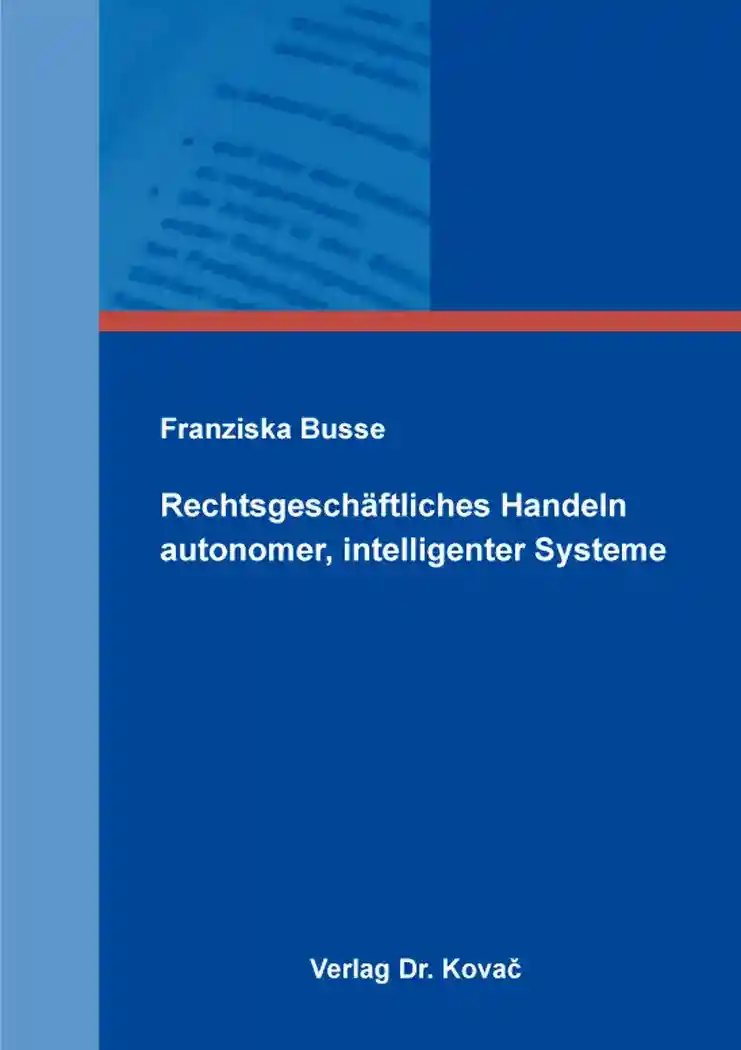Franziska BusseRechtsgeschäftliches Handeln autonomer, intelligenter Systeme
Studien zur Rechtswissenschaft, volume 465
Hamburg 2022, 284 pages
ISBN 978-3-339-12590-3 (print) |ISBN 978-3-339-12591-0 (eBook)
About this book deutschenglish
Topics such as artificial intelligence, robotics and smart devices are widespread today. The discussion is not bypassing legal science either.
In today’s fast-paced society, there is a growing need to delegate complex tasks to a competent representative. In doing so, people want to take advantage of new types of software. In the future, autonomous and intelligent technology systems - electronic software agents – are expected to not only simplify or completely take over the completion of everyday business, but also difficult and economically extremely important business.
The systems used as a basis here are expected to go far beyond the capabilities of the programs known and used to date and, in particular, to develop an unprecedented degree of autonomy through the possibility of machine learning. The question arises as to whether the operation of such highly advanced software agents in legal transactions is adequately covered under the current legal situation.
The author examines whether maintaining the current practice of attributing software-based declarations of intent is possible without dogmatic breaks, conflicts of interest, and legal uncertainty. She drafts a concept in which agency, as a concept of attribution already regulated by law, is made usable for such declarations. In doing so, the author does not resort to the - in the literature hotly debated - attribution of legal capacity to software agents, but chooses an isolated solution strategy. Based on this, the author shows where a transfer of the representation rules hardly poses any problems and where dogmatic breaks must and can be resolved.
The result is a draft law that solves the problems previously raised and is intended to offer a regulatory concept that can be applied in practice, based on existing representation law. In doing so, the author goes beyond the approaches discussed in the literature to date and deals in particular depth with the thought experiment of „electronic representation“.
Keywords
AIArtificial IntelligenceAutonome SystemeAutonomieElektronische AgentenEPersonIntelligente SystemeKIKünstliche IntelligenzSoftwareagentenStellvertretungWillenserklärungIhr Werk im Verlag Dr. Kovač

Möchten Sie Ihre wissenschaftliche Arbeit publizieren? Erfahren Sie mehr über unsere günstigen Konditionen und unseren Service für Autorinnen und Autoren.
